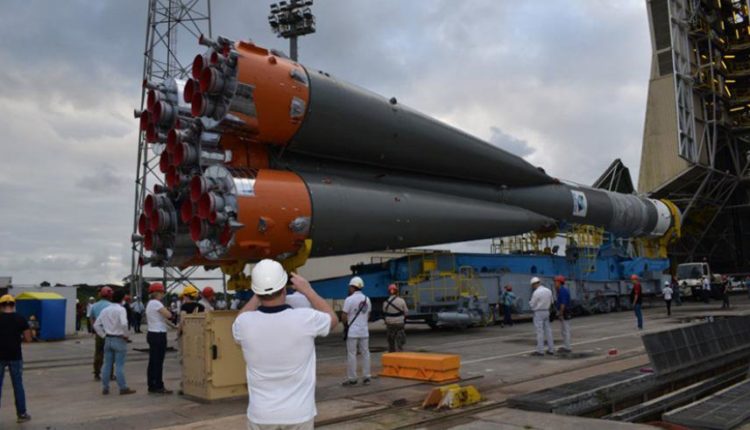Rwanda is working with OneWeb, a UK based company, to unveil a satellite that will provide broadband internet to schools in remote areas. This was announced this week by the Ministry of ICT and Innovation.
On Wednesday at around 23:30 pm, the much anticipated satellite is expected to be sent into orbit from a spaceport on the Atlantic coast of French Guiana.
The satellite was nicknamed Icyerekezo by students from Nkombo Island (Groupe Secondaire St Pierre Nkombo).
The school will be the first benefit of the broadband satellite.
The location of the school (on Nkombo Island in Lake Kivu) had made it extremely costly and inefficient to be connected to standard fiber connections. A satellite is the perfect solution to provide internet connectivity.
OneWeb is backed by some of the major players in the space industry.
The global communication firm’s partnership with Rwanda will, however, enable orbiting satellites to connect more remote schools across Rwanda.
According to available information, OneWeb is backed by some of the major players in the space industry and finance, including Virgin, Qualcomm, Airbus and Soft Bank of Japan, among others.
The satellite that will be launched tonight is part of the first six initial satellites that OneWeb is launching. It plans to roll out 650 satellites across the world to connect schools, hospitals and other basic facilities.
Rwanda believes launching ‘Icyerekezo’ satellite is a symbol of the country’s commitment to build the local space industry, build local capacity, inspire the younger generation and prepare to usher Rwanda into a hyper-connected future.
In January this year, Rwanda announced its long-term space programme plan, with a complementary initiative to launch its own first satellite this year.
Subsequently, during the recent World Government Summit, UNICEF announced Rwanda’s partnership with Project Connect, an initiative designed to visually map school connectivity status globally.
The Ministry of ICT and Innovation indicated in a statement that these datasets are crucial input into designing sustainable programmes for connecting schools across Rwanda and globally.
The programme will involve training students in space technology, part of the efforts of the newly launched Rwanda Coding Academy which was set up to foster local experts in software development. This is all part of the Rwanda Digital talent policy’s drive to strengthen ICT capabilities in the country.
Both Rwanda and OneWeb believe that without a means of connection, economies stagnate, education falls behind, and development slows significantly compared to connected regions.
The Minister of ICT and Innovation, Paula Ingabire highlighted that the government has made remarkable efforts to invest in broadband connectivity and sees this as a great opportunity to continue connecting underserved communities.
“Rwanda’s choice to invest in space technologies is part of our broader mission to bridge the digital divide by providing equal digital opportunities to rural and remote communities.
We are delighted to partner with OneWeb in this transformative initiative which presents us a huge opportunity to leverage satellite connectivity, using OneWeb’s constellation, providing low-latency and high-speed internet to schools in remote communities of Rwanda,” she said.
The minister added the partnership responds to Rwanda’s intention of becoming a regional technology innovation hub, opening new pathways for connectivity, providing better education and creating new opportunities for innovators.
Greg Wyler, OneWeb’s Founder and Chairman indicated that connecting remote schools to bridge the digital divide that still impacts half the population of the world is at the heart of their vision.
“We are delighted to partner with the Rwandan Government and particularly the students of Nkombo. The connectivity we can provide them will allow them to realise their dreams and allow Rwanda to become a hub for technological innovation,” he noted.
The benefits that come with the launch of this satellite are expected to go beyond internet access. It could also enable communities to access government online services and provide access to global educational content to students and educators, they say.
Source: New Times Publications


Comments are closed.